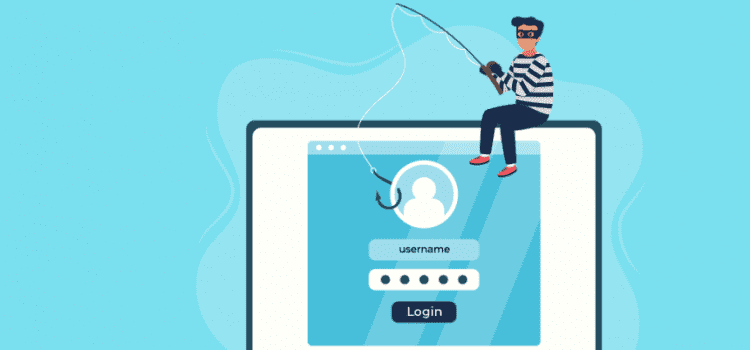As if the ongoing Coronavirus pandemic isn’t enough to contend with, professionals must now also ramp up defences against a rise in COVID-themed phishing and cyber attacks.
What is a phishing attack?
A phishing attack is a specific category of cyber attack. They aim to manipulate victims into opening an email, text message or even an instant message sent by an attacker pretending to be a trusted sender.
Typically, it involves the recipient receiving a link to click. They’re usually then encouraged to provide sensitive data, such as credit card details or log in information.
This might sound like something you would never fall for but freelancer, trust us. These sophisticated attackers can be extremely convincing.
The facts and figures of phishing attacks
According to recent research published by cyber security experts, Centrify, the majority of UK business decision-makers are bracing themselves for a sharp spike in COVID-related phishing attacks.
The survey includes large and medium enterprises across the country, with 64% anticipating an increase in attacks.
The same set of findings also reveals that 52% expect to see a hike in cyber attacks following lockdowns across the UK.
A lack of cyber preparation
Despite concerns, Centrify found a significant 37% have no plans to train employees on the cyber security risks businesses are facing. Nor do they have any current data management policies.
Even more worryingly, a further 37% admitted having inadequate systems to verify the identities of employees accessing company data.
According to Chief Revenue Officer at Centrify, Howard Greenfield, COVID-themed email, SMS and web-based phishing attacks have not been uncommon over the last year.
“So far we’ve seen cyber attack campaigns using the guise of charity, government financial aid initiatives, and business support schemes already lure thousands of victims into leaking sensitive information, such as log-in credentials and payment details.”
He went on to add how important it is that companies adopt a zero trust approach to protecting their data. Greenfield urges businesses to ensure that leaked log-in credentials do not necessarily translate to a breach of data.
Does it affect freelancers?
As a freelancer, you may read this and feel that these kinds of issues only really impact larger businesses.
You would be right in assuming that the risk is certainly higher for companies over freelance professionals. In reality, when it comes to cyber attacks, nobody is completely safe.
With that in mind, we’ve put together some advice on how you can protect yourself against online scams and cyber attacks.
Our top cyber security tips for freelancers in 2021
The International Data Corporation (IDC) expects the worldwide security spend to surpass $174 by 2024. This would be a compound annual growth rate of more than 8% between 2020-2024 (Forbes).
If you don’t have a huge budget to allocate to cyber security there are still a few simple things to help you protect your business.
Ensure all passwords are strong
Many websites, systems and software now prompt you to create a password that is a unique combination of upper case letters, lower case letters, numbers and symbols.
Browsers such as Chrome have a feature to suggest strong passwords. It’ll even store it in a password manager for you.
Change passwords regularly
Changing your passwords on a regular basis is a great way to bolster your online protection. Experts recommend doing this every three months, so set a reminder so you never forget to do it.
Where it’s an option, it’s also worth taking advantage of two-factor authentication. This digital tools allows you to implement an additional layer of security.
Your initial login will trigger a request for further credentials, such as texting you a code to provide.
Invest in antivirus software
Some people make the mistake of thinking that a firewall provides sufficient cyber protection but quite often, this isn’t true.
Boost your defences by investing in an antivirus programme that will assess things like websites, emails and downloads for any potential risk.
Keep all of your devices and software up-to-date
Ensure that you stay on top of system updates and software updates on all of your devices. Doing so helps them remain effective against current threats as they evolve.
Failing to do so might leave you vulnerable to attack, despite other security measures in place.
Always work from a place with a secure connection
One of the most appealing things about being a freelancer is the ability to remain flexible when choosing where you work from.
Sometimes it might be from the comfort of your own sofa. Other times it’s from a local cafe, or a hotel lobby on the other side of the world.
The consequence of this is that you’re often changing the network you’re working from and not all of these networks will offer a secure connection.
To defend yourself from cybercrime more effectively, ensure you’re using a secure connection, if you can.
Your online presence and data is extremely precious so it’s important to stay vigilant out there, freelancer!
Still thinking about freelancing? Check out our articles and guides about starting out as a freelancer.







